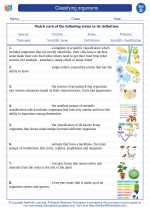Classifying organisms -> technology
Technology
Technology refers to the application of scientific knowledge for practical purposes, especially in industry. It encompasses a wide range of tools, systems, and methods used to solve problems, improve processes, and achieve goals. From simple tools like the wheel and the lever to complex systems such as computers and smartphones, technology has played a crucial role in shaping human civilization.
Types of Technology
There are several types of technology, including:
- Information Technology (IT): This includes computers, software, networks, and other systems used to store, retrieve, transmit, and manipulate data.
- Communication Technology: This refers to tools and systems used to facilitate communication, such as telephones, email, and social media platforms.
- Medical Technology: These are technologies used in the healthcare industry to diagnose, treat, and prevent diseases and injuries.
- Transportation Technology: This category includes vehicles, infrastructure, and systems used for moving people and goods from one place to another.
- Energy Technology: These technologies are used to generate, store, and distribute energy, including renewable energy sources and energy-efficient systems.
The Impact of Technology
Technology has had a profound impact on society, economy, and the environment. Some of the key impacts of technology include:
- Improved Efficiency: Technology has enabled the automation of tasks, leading to increased productivity and efficiency in various industries.
- Global Connectivity: Advances in communication technology have connected people around the world, facilitating the exchange of information and ideas.
- Healthcare Advancements: Medical technology has led to breakthroughs in diagnosis, treatment, and prevention of diseases, improving the quality of healthcare.
- Environmental Concerns: While technology has provided solutions for environmental challenges, it has also contributed to issues such as pollution and climate change.
- Ethical and Social Implications: The rapid pace of technological advancement has raised ethical questions related to privacy, security, and the impact on employment.
Study Guide
To better understand the topic of technology, consider the following study guide:
- Define technology and its significance in human history.
- Explore the different types of technology and provide examples for each type.
- Analyze the impact of technology on society, economy, and the environment.
- Discuss the ethical considerations associated with technological advancements.
- Examine the role of technology in addressing global challenges such as healthcare, energy, and transportation.
By studying these aspects of technology, you can gain a comprehensive understanding of its role in shaping the world we live in.
.◂Science Worksheets and Study Guides Fourth Grade. Classifying organisms

 Worksheet/Answer key
Worksheet/Answer key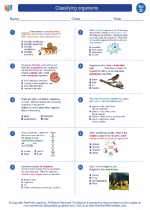
 Worksheet/Answer key
Worksheet/Answer key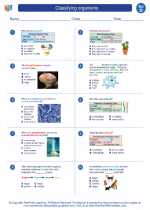
 Worksheet/Answer key
Worksheet/Answer key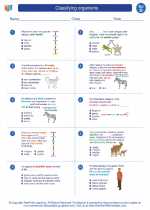
 Vocabulary/Answer key
Vocabulary/Answer key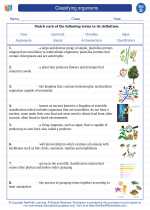
 Vocabulary/Answer key
Vocabulary/Answer key
 Vocabulary/Answer key
Vocabulary/Answer key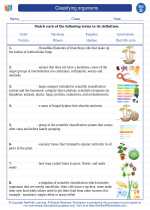
 Vocabulary/Answer key
Vocabulary/Answer key